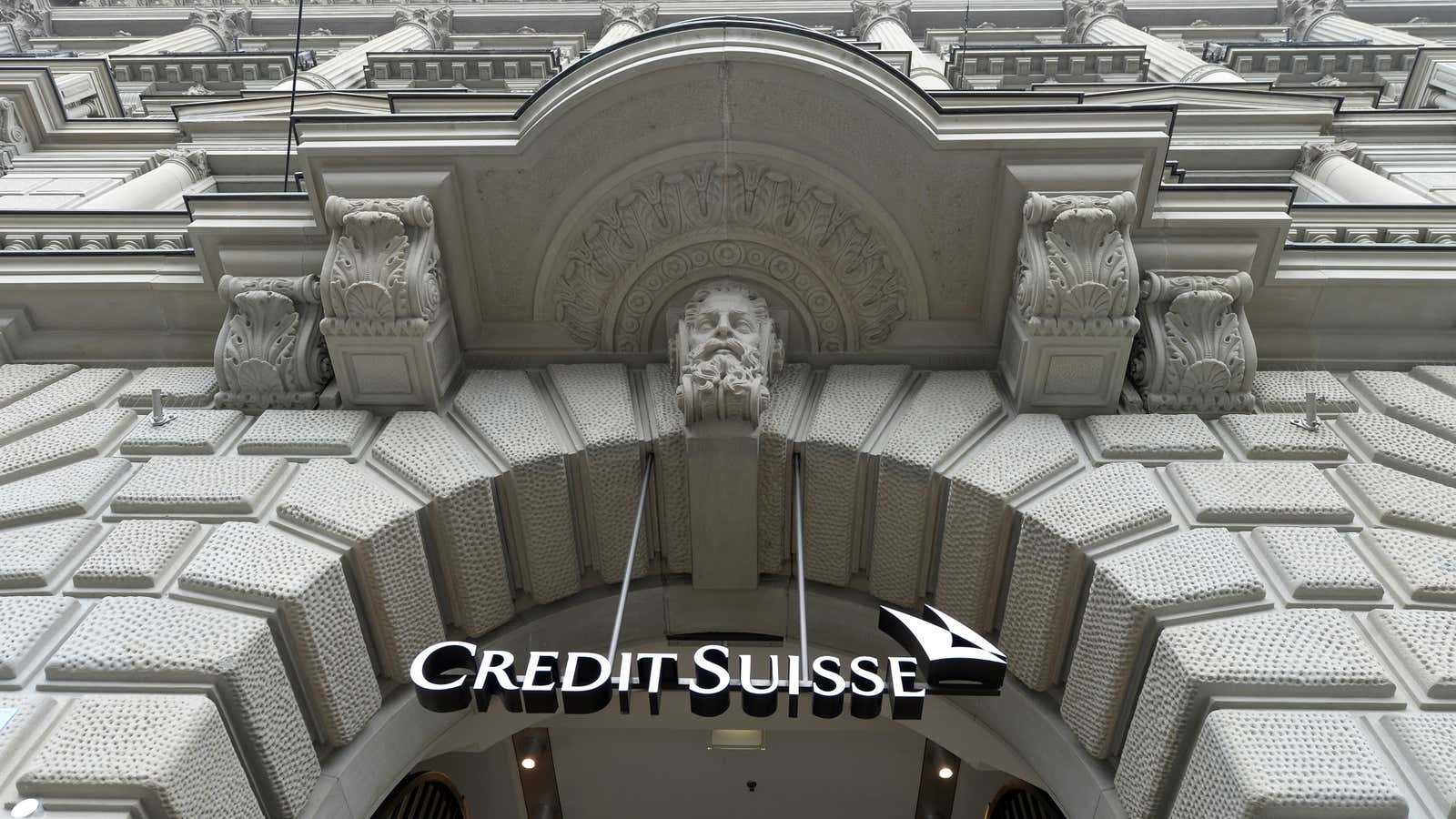One upside to replacing humans with machines is that robots don’t make mistakes, lie, or fret about their performance. But the people in charge of the algorithms still do: New York’s financial regulator alleges that two big banks served up error messages to clients in order to hide what their foreign-exchange algorithms were doing behind the scenes.
Credit Suisse’s systems were designed to tell clients placing currency trades that a glitch had taken place—“An Error Occurred – Please Contact Credit Suisse”—when in reality the bank was just canceling orders that would have been unprofitable for it, according to a New York State Department of Financial Services (DFS) investigation out this week (pdf). Barclays also blamed technology problems to cover up what was really going on, according to separate DFS allegations in 2015 (pdf). The banks have been fined a combined $285 million as a result of the allegations—$135 million for Credit Suisse (which also included other alleged misbehaviors in currency markets) and $150 million for Barclays.
Both banks were exploiting a controversial feature in electronic currency markets known as “last look,” according to the DFS, which allows dealers to hold orders before deciding whether or not to complete the transactions. One reason banks use last look is to protect themselves against high-frequency trading firms that can detect and trade on price changes faster than the banks can, known as latency arbitrage. But the DFS says Credit Suisse and Barclays used the defensive mechanism to exploit their own customers.
At first, Credit Suisse was using last look in a reasonable way, according to the DFS. And while not every employee was in agreement, emails in February 2013 suggest that profit motives eventually took over:
[G]iven the upcoming separation of [the] IB [Investment Bank] and PB [Private Bank] businesses things are going to get a lot tougher PNL [profit and loss]-wise for the eFX business. I’d like to push forward with the default last look in order to increase PNL
Before long, the DFS says Credit Suisse used last look to make money at the expense of its clients. Instead of telling them that their orders had been rejected using last look, the bank hid behind vague error messages. Customers sensed something was going on, according to an April 2013 email:
Our FIX Interface received the error “An Error Occurred – Please Contact Credit Suisse”, so there is Zero indication that these rejections are due to last look, based on the text it could be anything. Please investigate on your side, is there a delay in your price feed? Why is there not a more suitable rejection text if it really is due to Last Look?
But the error messages kept coming. By October 2014, Credit Suisse’s head of strategy said the bank was “getting queries about our rejects on an almost daily basis now due to the unclear message.”
A few years earlier, Barclays customers noticed a similar issue. Instead of being told their trades had been rejected because of last look, they got a message that said “NACK,” which stood for “Not Acknowledged.”
Barclays clients also complained, according to the DFS:
On December 15, 2010, a Barclays client wrote, “[w]e have noticed that there were over 300 rejected orders with you today and the reason is ‘NACK’, could you pls have a look at them and advise what’s causing it?”
When some sophisticated customers complained, Barclays had discussions and made adjustments. In other cases, Barclays employees blamed technology:
On November 7, 2011, the Barclays Managing Director and Head of Automated Electronic FX Trading wrote: “Do not discuss Last Look with Sales. If there has been a spurt [in rejected trades] just blame it on the weekend IT release and say it’s being fixed.”
Credit Suisse adjusted its last-look policies when it sensed media scrutiny would lead to a regulatory crackdown, according to the DFS. The Zurich-based bank neither admitted nor denied wrongdoing in its settlement with the New York watchdog. Barclays has said it’s committed to a global code of conduct that’s meant to tighten standards in the foreign exchange market.
An email from Credit Suisse’s former head of e-commerce pointed out that profit pressure “should never be a cause for reversing matters of principle.” The executive diplomatically noted that if the other person disagreed, “we should talk rather than exchange further emails.” This is another lesson from the billions of dollars of fines for bank misbehavior in recent years: If you’re going to abandon your principles, don’t put it in writing.
